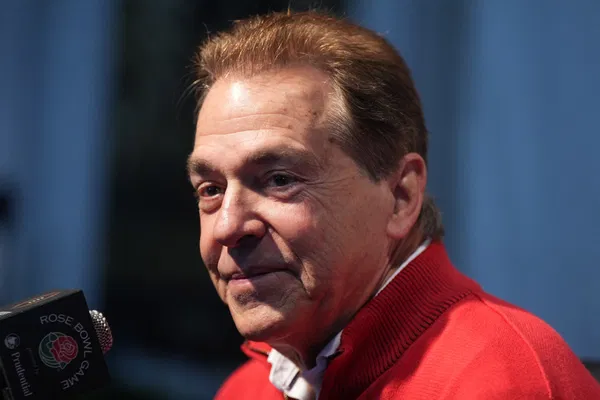
The “GOAT-to-billionaire” trajectory is becoming a recognizable trend in sports. Though the phrase may not be catchy, the reality speaks for itself. Legendary athletes like Michael Jordan, LeBron James, and Tiger Woods have all made the leap into billionaire status, either during or after their storied careers. While some, such as LeBron and Tiger, built wealth concurrently with their playing days, others saw their fortunes grow post-retirement. The common thread is that substantial earnings, paired with smart business decisions, create a compounding effect. Take Nick Saban, for example: over the course of his coaching career, he earned around $150 million in contracts, and that doesn’t even include revenue from endorsements and business ventures tied to his coaching success.
A pivotal move in Saban’s financial journey came in 2013, when Mercedes-Benz opened its first major plant outside Germany in Tuscaloosa, Alabama. The company formed a natural alliance with the Alabama Crimson Tide, and Saban became involved in related events and promotions. Already eyeing a future in the car dealership business, Saban was introduced to automotive entrepreneur Joe Agresti through Mercedes executives. At the time, Agresti was already successful, but his partnership with Saban helped elevate him to billionaire status. Their collaboration led to the founding of Dream Motor Group in 2014, a network of dealerships—especially Mercedes-Benz locations—across five states. The business now sells over 20,000 cars a year and continues to grow, expanding into new manufacturers and regions.
Forbes recently profiled this successful business duo, revealing just how fruitful the partnership has been. Saban reflected positively on his decision to work with Agresti, recounting how a meeting intended to last 30 minutes turned into a four-hour discussion. Confident in Agresti’s abilities from the start, Saban likened the experience to hiring the perfect offensive coordinator—instantly knowing it was the right fit.

Agresti, on the other hand, admitted he initially thought Saban’s phone call was a joke. But the two have formed a highly productive relationship, regularly landing deals thanks to their high-profile networks. Dream Motor Group has recently brought on Steve Cannon, former CEO of Mercedes-Benz USA, as a third partner. Together, the trio is now exploring opportunities in the sports industry.
Among these plans, there are hints that Saban may invest in Tennessee-based sports teams. Although specifics weren’t disclosed, speculation includes the possibility of involvement with the University of Tennessee’s football program. Given the close-knit nature of the SEC, it wouldn’t be completely shocking if Saban and Tennessee’s leadership had some exploratory talks. Alabama fans may not be thrilled at the idea, while Tennessee supporters would likely welcome Saban’s influence and resources.
Even with only a minority stake in many of his ventures, Saban is on the brink of joining the billionaire club, making him the first college football coach to do so. Agresti is already there, reportedly worth $1.1 billion.
Saban has also continued to influence college football beyond Alabama, particularly since retiring. At one pre-season gala, he offered advice to Georgia state senator Brandon Beach on how to support Bulldogs head coach Kirby Smart. Saban suggested eliminating state income tax on Name, Image, and Likeness (NIL) deals, which could give Georgia an edge in recruitment. Beach took the idea seriously, and it’s now part of proposed legislation. NIL earnings are currently taxed, with Georgia’s rate at 5.39%, so eliminating that could make the school even more attractive to recruits.
While this may seem like Saban aiding a rival, his growing wealth and influence suggest he’s playing a bigger game—one that transcends school loyalties. Whether fans see it as a strategic masterstroke or a typical tale of sports figures turning moguls, Saban’s rise toward billionaire status is undeniable.